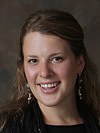…Arami oved avi—my father was a fugitive Aramean. He went down to Egypt in meager numbers, but there he became a great and populous nation. The Egyptians dealt harshly with us, oppressed us, imposed heavy labor upon us… Adonai freed us from Egypt by a mighty hand, by an outstretched arm and awesome power, and by signs and portents. God brought us to this place and gave us this land, a land flowing with milk and honey. Wherefore I now bring the first fruits of the soil which You, Adonai, have given me.[1]
These lines, perhaps best known to many of us from the Passover Haggadah, also comprise the text of the ancient first-fruits (Bikkurim) ritual described in Parashat Ki Tavo. Once settled in the Land of Israel, our ancestors were commanded to offer God a basket of the first of their fruit crops.[2] Beyond this physical act, the ritual required each person making the offering to recite this passage (called Mikra Bikkurim), summing the arc of the Jewish redemptive narrative through both a personal and collective lens. The ritual’s combination of the physical and verbal, individual and communal, spiritual and historical seem to render it an “ideal” ritual.
But the Mishnah points out one snag. While those who knew the words of Mikra Bikkurim recited it from memory, those unfamiliar with the script would have to repeat the words after a priest.[3] As a result, many of these presumably less-educated Israelites felt “shame”[4] and stopped bringing their first-fruit offerings altogether. Concerned that not every Israelite would thus be able to participate equally, the Mishnah offered a corrective measure in which everyone, regardless of education, had to repeat after the priest, thus preserving the dignity of the under-educated and allowing the return of regular ritual performance for all.
The very next mishnah points out another disparity between the people who brought offerings: the wealthy brought first-fruit baskets made with gold and silver whereas the poor brought simple baskets woven with tree branches.[5] However, unlike the previous teaching, this mishnah simply ends here. There is no indication that shame about their meager baskets prevented poor people from participating in the public Bikkurim mitzvah, nor is there—as we might expect—a rabbinic mandate for rich and poor alike to bring wicker baskets as a means of equalizing this part of the experience.
We therefore learn from these two mishnayot that being poor did not limit participation in the first-fruit offerings, but being undereducated did. This counters our natural assumption that people would surely feel more ashamed of their financial insecurity (so blatant given the appearance of their baskets), than of their poor education, something much less obvious.
Whether they intended to or not, by raising educational disparity as such a powerful obstacle to equal participation, the rabbis of the Mishnah highlighted an important understanding about ending poverty, discrimination and injustice. Not only can lack of education be a source of shame—perhaps even more embarrassing than poverty—but it can also be a significant obstacle to overcoming poverty. In the words of an impoverished and illiterate resident of Swaziland:
I used to never worry about my illiteracy and the fact that I was not able to send my children to school, as long as we had something to eat. But now I realize that my children are in trouble for life because they cannot get any decent job if they don’t know how to read and write.[6]
This understanding—that education is a critical component of poverty-reduction—drives the work of many organizations working to bring global social justice to our world today. Take AJWS grantee Shan Youth Power as an example. As a result of horrific human rights violations, many Shan people have fled from Burma to Thailand since the 1990s. Due to their lack of legal refugee status, the Shan, particularly the youth, face immense hardships. Shan Youth Power describes the situation this way:
Constant moving, discrimination, and academic misplacement within the school system, lack of transportation, and language barriers all hinder or block the Shan migrant students’ ability to attain academic success, and therefore gain access to higher education or better jobs in the future.[7]
To address these immense challenges, Shan Youth Power has developed teaching and tutorial programs to directly reach hundreds of Shan children and youth and empower them through education.
Societal change and equalization cannot and will not occur unless and until we have empowered people with the knowledge and skills to raise their status in the world. The mishnah about Bikkurim offered a model of equalized opportunity for our ancestors. By offering support for those who work to educate the disenfranchised in our world today, we can do the same.
[1] Deuteronomy 26:3, 5-10.
[2] Specifically the seven species of vegetation identified by Torah as unique to the land of Israel: wheat, barley, grapes, figs, pomegranates, olives and dates.
[3] Mishnah Bikkurim 3:7.
[4] As noted in the commentaries on this mishnah.
[5] Mishnah Bikkurim 3:8.
[6] Voices of the Poor: Can Anyone Hear Us? World Bank, 2000. Available at http://siteresources.worldbank.org/INTPOVERTY/Resources/335642-1124115102975/1555199-1124115187705/ch2.pdf
[7] Education Project, Shan Youth Power, http://www.shanyouthpower.org.

